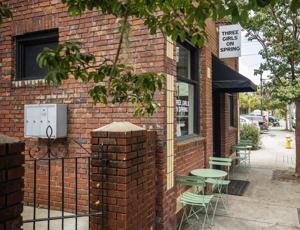Coffee gives countless people a jolt of energy every day—and soon it could do the same for our tech. Scientists have recently found a way to use spent coffee grounds for electrodes in lithium-sulfur batteries, the coffee-focused website Sprudge reported on Thursday. While researchers have in the past been able to turn coffee grounds into electrodes for lithium-ion batteries, these next-gen lithium-sulfur batteries have 10 times the life span.
The findings come from down under, with the Australian Research Council’s Microrecycling Research Hub discovering the new use for coffee grounds. “The battery value chain is typically diverse and this can cause significant issues for manufacturers and end-users,” said Neeraj Sharma, a professor at the University of New South Wales and a co-author of the paper, according to Australia’s Nuclear Science and Technology Organization. “By using waste produced at scale for battery components, industry can diversify their inputs while addressing both environmental and sustainability concerns.

” Typically, lithium-sulfur batteries loose capacity after many charges, Sprudge noted. A more porous architecture in the electrodes would help make them more efficient, given that it traps the chemicals and keeps them from escaping. Coffee grounds, helpfully, can be made into porous carbon via a process called pyrolysis, in which high temperatures heat up the grounds without the presence of oxygen.
That results in different pore sizes, which t.























